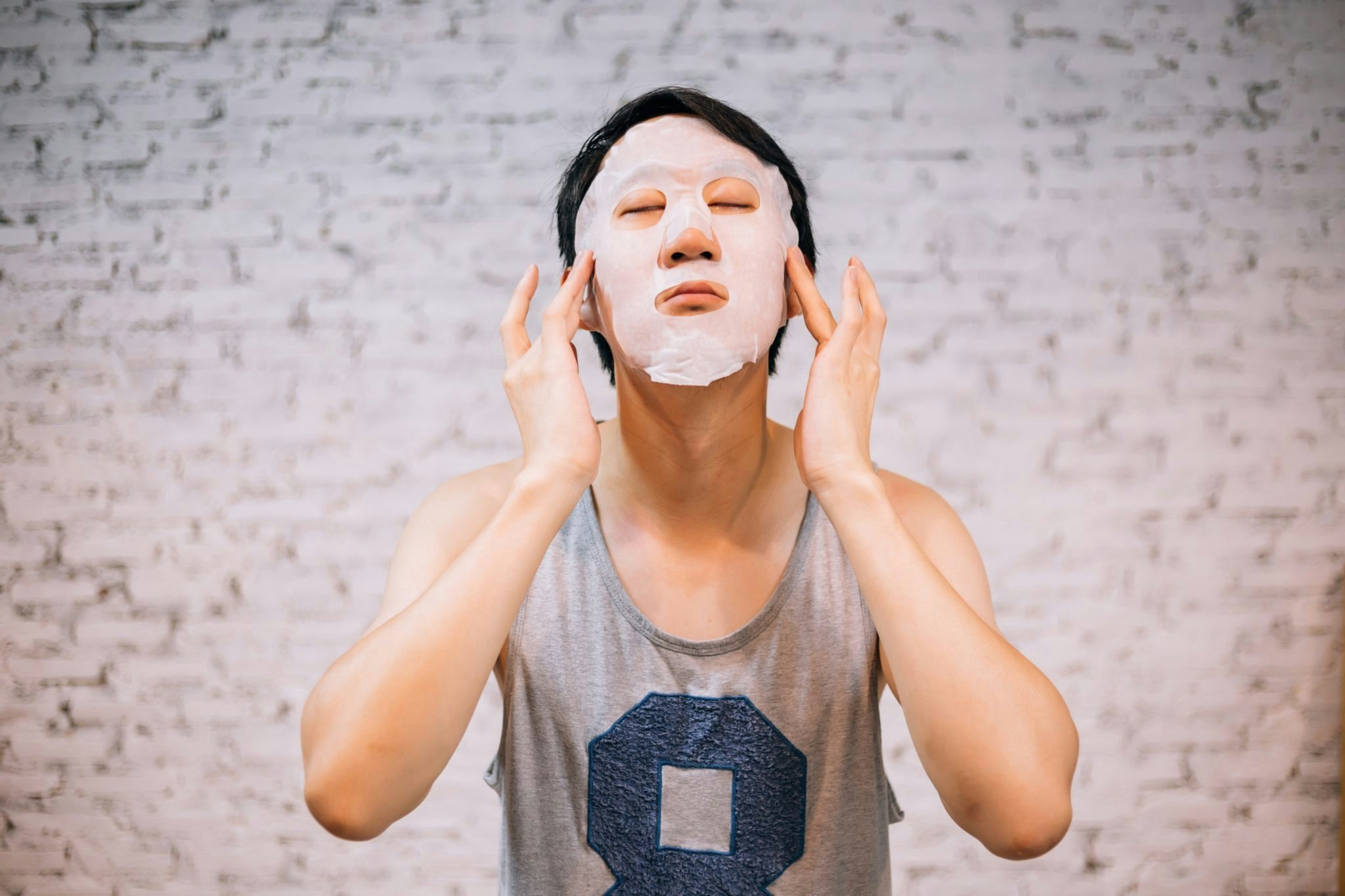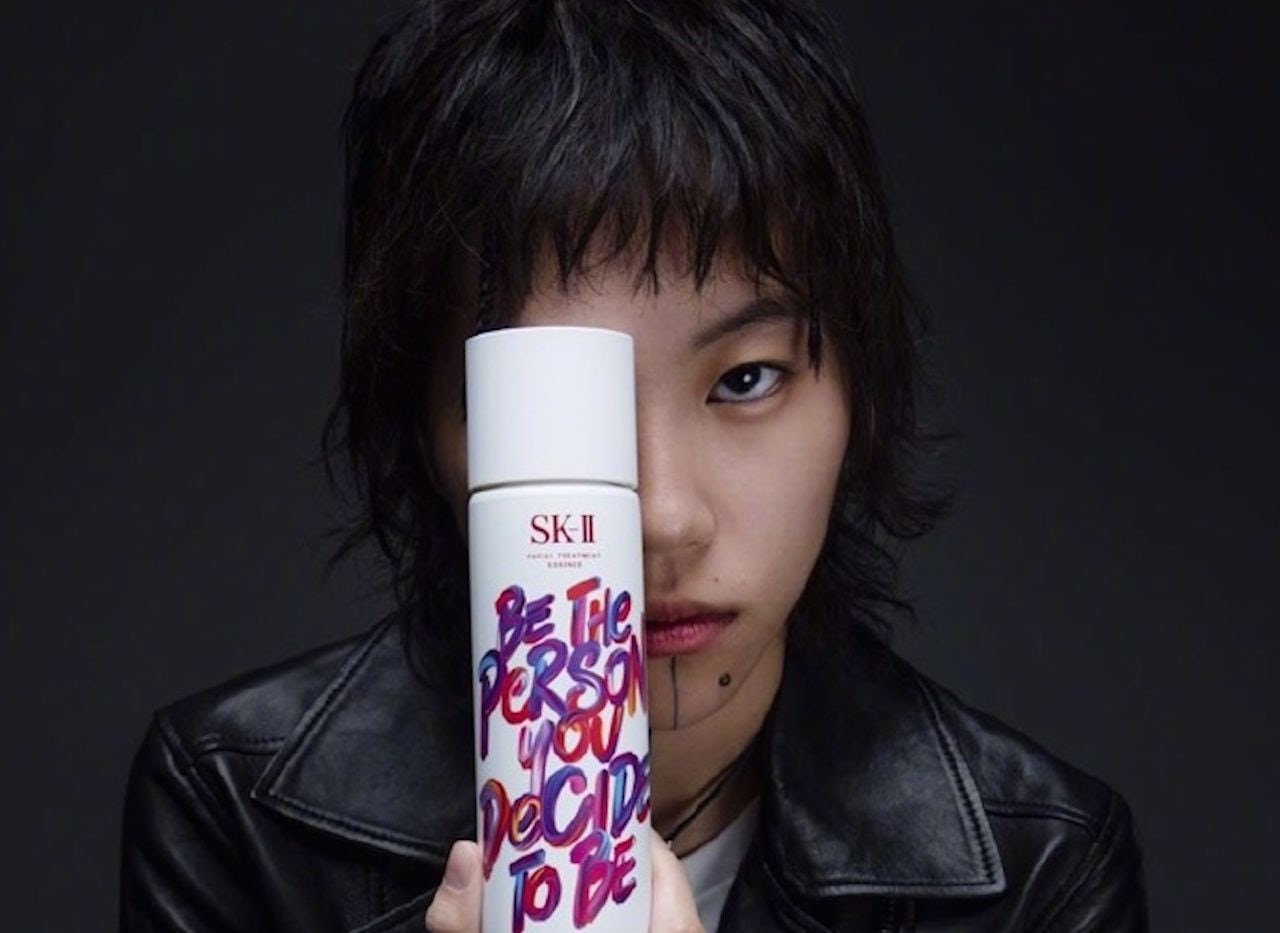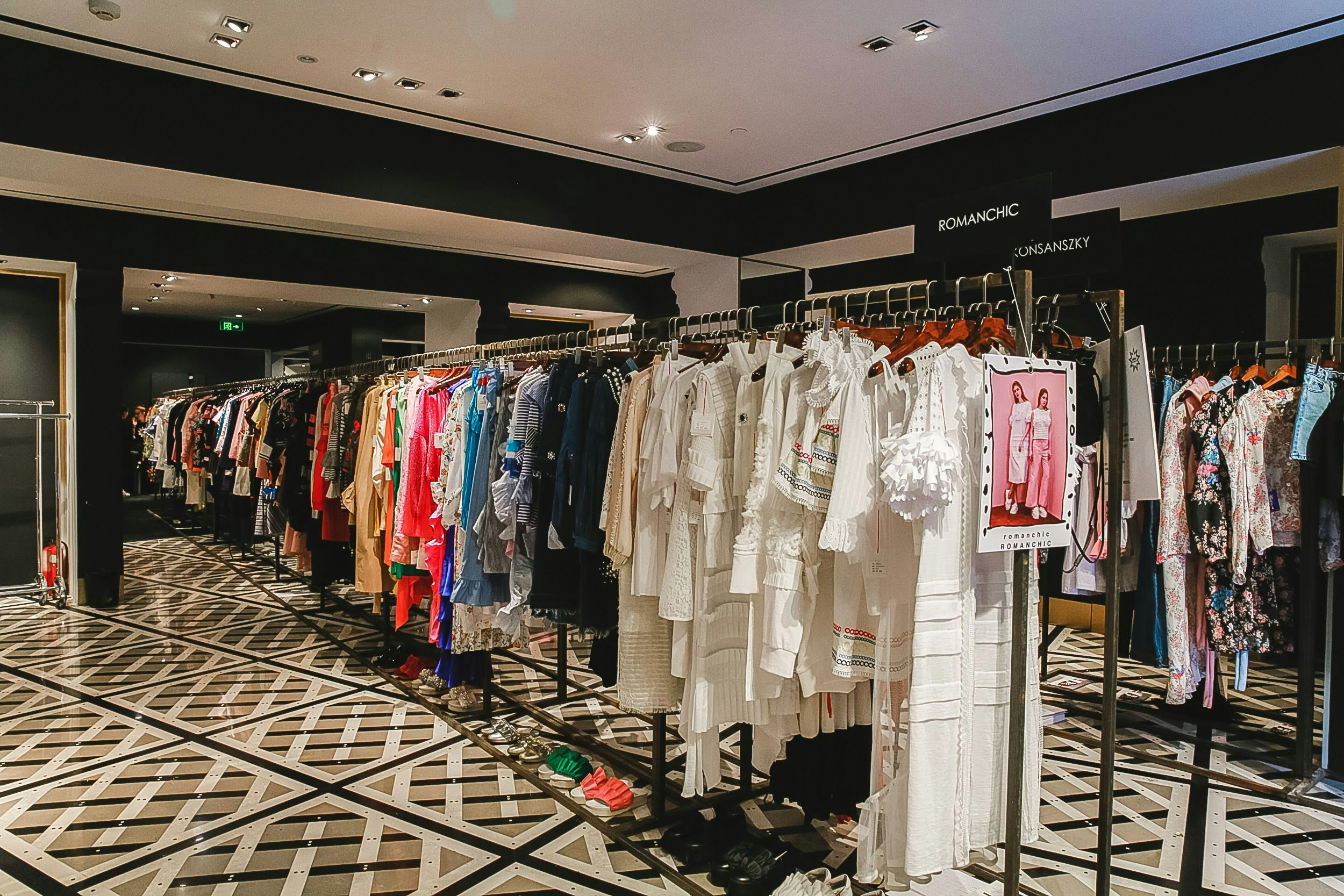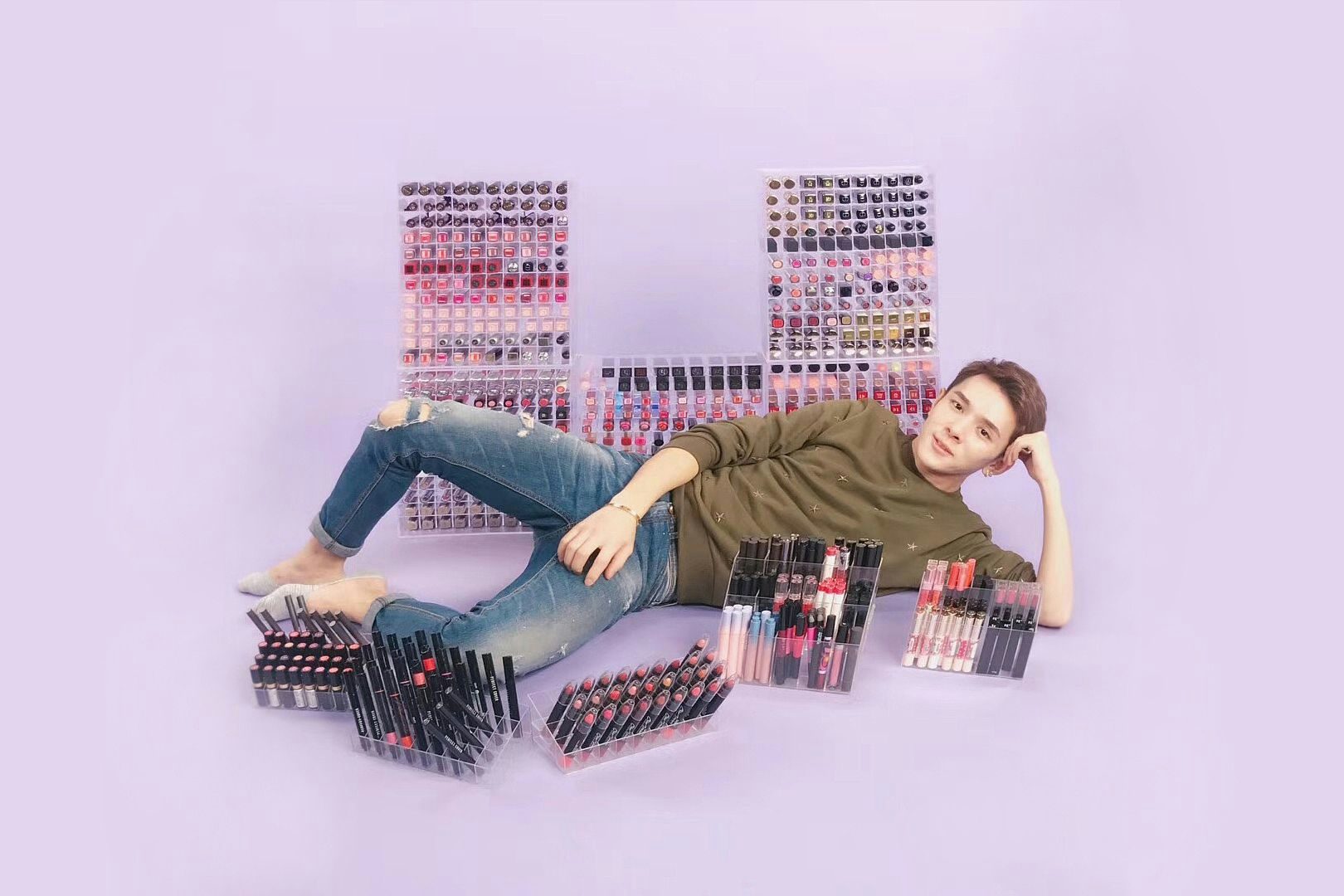“I wear makeup every day” explains 22 year old, Shanghai Jiaotong university student Andy Gu. “I would never tell my father, I think he’d be pretty angry at me. But it’s not obvious - just a little bit of concealer, some brightening products to enhance my skin. It makes me feel good.”
For young Chinese men like Gu, the idea that luxury cosmetics are exclusively for women is an outdated notion. Traditionally, China has been a country of unshakable gender roles. But, in an evolving modern China, the male beauty industry is booming.
The retail trade revenue of cosmetics in China grew from 19.5 billion RMB to 20.13 billion in May 2018, according to data by Statista. The same study showed that the average weekly time spent on personal grooming by men in China is now around 2.2 hours.
Owing to a celebrity-led acceptance of men and makeup, and a blurring of conventional gender norms, the Chinese male cosmetics market is on course to become the most lucrative in the world. The annual growth of male beauty consumption in China is predicted to reach 13.5 percent by 2019 - well ahead of the 5.8 percent rise in the global male beauty market, according to research firm Euromonitor.
Popular Culture#
“The Asia Pacific region has the highest market growth in the male beauty industry,” Matthieu Rochette Schneider, General Manager at brand intelligence firm centdegrés told Jing Daily, “In China, millennial male consumers are the key demographic of today’s beauty market. More than influencer collaborations and product innovations - the shift in Chinese culture has been essential. Males maintaining their appearances isn’t necessarily taboo anymore.”
In popular culture, China’s young male celebrities are now often seen wearing and advertising make-up and beauty products. In 2017, French cosmetics brand L’occitane, with brand ambassador Chinese actor Joker Xue, achieved a 49 percent sales increase in China, and an 11 percent increase in their year-on-year growth, “an amazing feat by a male cosmetics ambassador” said Rochette Schneider.
In China, a term has emerged to describe the men who are leading this new kind of beauty revolution. “Little Fresh Meat” refers to young good-looking men - with flawless skin. One of these men, Luhan, often referred to as the “Chinese Justin Bieber,” works as a brand ambassador for both Lancôme and L’Oreal Paris.
Despite these cosmetics brands originally using attractive male celebrities to target women, male-targeted marketing campaigns are starting to emerge. In 2017, 96 percent of male e-tail users purchased beauty and cosmetics products at least once, according to data released by China’s e-commerce platform VIP.com and JD.com. The report “De-gendered Consumption: China’s Gender Trends Report” found that for the past three years, the sales volume of male beauty products has almost doubled year-on-year.
The report also showed a high increase in male demand for face masks, bb creams, concealers and eyebrow pencils. Although surprising to some, Gu says this data is to be expected, “Chinese men are wearing makeup now, it's not just about skincare and moisture creams. Lots of my male friends wear concealer every day.”
Shifting Gender Norms#
For Father’s Day this year, an increasing number of traditionally female-oriented cosmetics and fragrance brands released campaigns targeted at men, indicating the country’s shifting views on gender roles and styles. Luxury skincare brand La Mer listed two of its signature skincare products, which have long been popular among China’s female skincare consumers, as the ideal gifts for Chinese fathers.
This emerging trend is something Jennifer Coppolino, Director of Market Insights and Consumer Engagement at premium skincare brand Clé de Peau Beauté, has also seen emerging, “The Chinese beauty market is set to truly expand and grow, and men participating in that is set to change the way the market is shaped,” she said.
For now, Clé de Peau Beauté’s target Chinese market is still the female beauty consumer, but Coppolino says it is only a matter of time before the male consumer becomes a larger part of its marketing strategy,
“In general, the male beauty category has really grown, and although we don’t currently have any offerings specifically for men, we have noticed a rise in male interest for specific products. For example, we have seen more and more Chinese men buying our premium soaps, and finding they work very well for creating a lather for shaving.”
Notably, Coppolino says that male shoppers are interested in the brand's most premium products, including its luxury soaps priced at over 100.
“Male beauty shoppers are constantly asking for substance and sophistication, and they are also more and more interested in a brands’ values and identity,” explains Rochette Schneider.
According to him, it is essential that luxury brands take note, “Brands must jump on this fast train. It’s headed to the future of Chinese beauty: unisex trends.”



